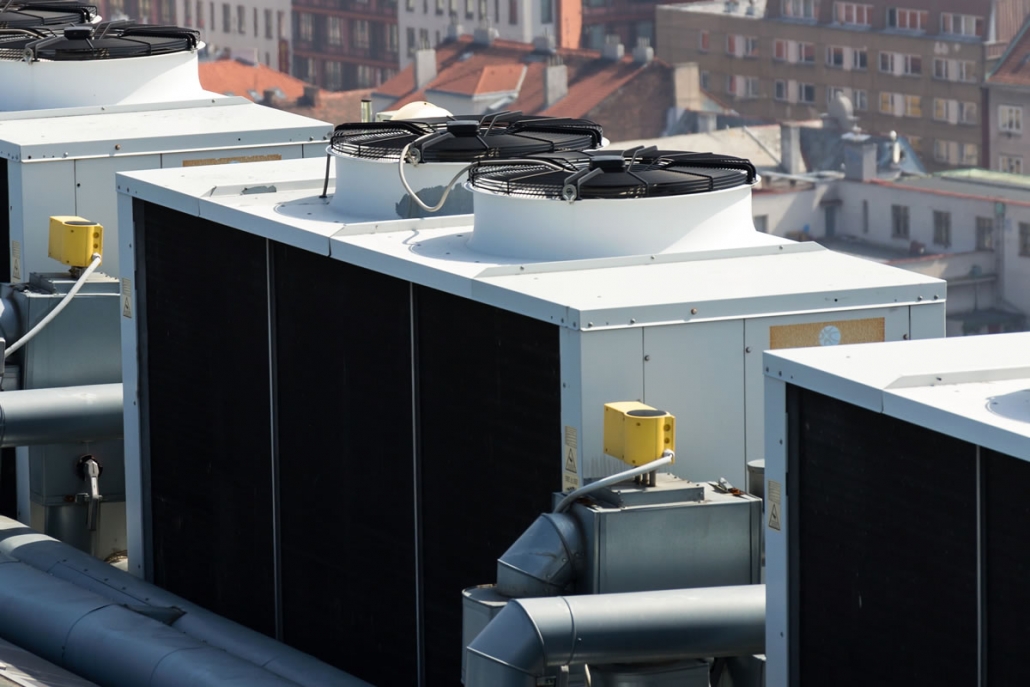Authorising Engineer (Water): Examining the Role and the Benefits it Can Bring to Local Authorities
 In this technical review the water safety specialists at Legionella Control International examine the challenges faced by councils and local authorities in managing legionella and water safety risk across their often large and complex property estates, and how a new approach taken from the health sector could deliver significant safety benefits.
In this technical review the water safety specialists at Legionella Control International examine the challenges faced by councils and local authorities in managing legionella and water safety risk across their often large and complex property estates, and how a new approach taken from the health sector could deliver significant safety benefits.
The review gives some background in to the role of the Authorising Engineer (Water) in the health sector and how water safety risk is managed more effectively. It then goes on to look at the challenges faced by local authorities, and how the adoption of this new approach “creatively swiped” from healthcare could radically improve the management of legionella and water safety risk.
A version of this story about how local authorities can improve the management of water safety risk across their property estates with the appointment of an independent Authorising Engineer first appeared in Legionella Control International’s newsletter. To get it in your inbox, sign up for free here.
Managing water safety, the healthcare model
Healthcare organisations including hospitals, care homes, and similar facilities often have large and complex water systems. They’re also likely to have many more people who are at greater risk of contracting illnesses via waterborne bacteria such as Legionella and Pseudomonas. This means it is vital to make sure everything that can be done is done to ensure the water systems used in those buildings are properly managed and maintained to ensure they are safe to use.
According to the UKs Department of Health document HTM04-01 Safe water in healthcare premises, there should be what’s called a “Water Safety Plan” in place to cover everything that must be done to ensure the water supplies, distribution systems and outlets are safe for use by staff, patients, and anyone else in the vicinity. It is the role of the “Water Safety Group” to make sure this plan is properly followed and adhered to.

Water Safety Group structure in healthcare – from HTM 04-01
The role of the Authorising Engineer (Water)
An Authorising Engineer (Water) plays a crucial role in this situation. An Authorising Engineer or AE is an independent professional adviser with ample knowledge, qualifications, and experience in this area. Specifically, they will be aware of all current legislation and safety guidance regarding healthcare premises and the requirements to ensure a safe supply of water in the premises.
This individual can take a position within the Water Safety Group, advising on the Water Safety Plan from a technical point of view. They can use their engineering knowledge to provide experienced guidance that will make the implementation of the water safety plan more effective and robust.
While it is not a legal requirement that you have an Authorising Engineer (Water) in place in this way, it is certainly vitally important. Healthcare premises including hospitals are complex, sometimes spread over multiple buildings on the same premises. It’s also quite likely that the water systems will have been added to, changed, or otherwise rebuilt over the years, especially on larger plots of land where new buildings and extensions have been added.
Can local authorities adopt the Authorising Engineer model to improve water safety across their property estates?
The short answer to this question is yes, most certainly. It’s clear that there are many advantages to enlisting the services of an Authorising Engineer (Water), especially where healthcare premises are concerned. However, these are not the only venues that can benefit from such an expert led approach. Local authorities and councils should also consider the many advantages of being able to rely on an independent water safety expert, someone who can provide experienced Authorising Engineer services across extensive property estates with high, medium and low risk building types.
You might think it is a big leap to go from complex hospital buildings to venues operated by a local authority. Can we compare a swimming pool or leisure centre with a hospital? While they are clearly completely different types of building, they do provide services to the general public, with many people from all walks of life coming into the buildings or venues during the average day.
Buildings within a typical local authority property portfolio also tend to have their own complex water systems. Moreover, we know that Legionella bacteria can readily become airborne in water vapour. This is likely to be present in leisure centres that have air conditioning systems, spas, hot tubs, steam rooms, pools, and even decorative water features. Clearly, there are still significant water safety risks inherent in such settings.

Even where council and local authority premises do not have such features, they are still likely to have complicated water systems that may pose heightened risks in certain areas. Old building stock, air conditioning, disused rooms or areas that are infrequently used, and old runs of pipework that are rarely used can all pose dangers.
The safety benefits of hiring an Authorising Engineer (Water) to serve a local authority
As we have already noted, local authorities will likely have a large number and range of properties they are responsible for. Offices, libraries, swimming pools, cooling towers, vehicle washers, and even decorative fountains or other external water features that are open to the public.
It’s obvious that a local authority is in a somewhat unique position. There are many businesses that occupy large office buildings or have other premises they need to be sure are safe from a water safety point of view. However, local authorities will be responsible for ensuring the safety of all those who live, work or visit any of their buildings. They also need to consider the safety of anyone who uses the building – and as we’ve seen, this also extends to people walking close to cooling towers, fountains, or other water features.
An Authorising Engineer (Water) can therefore provide the right type of support and expert insight into what needs to be done to ensure safety for all those concerned. While the exact processes of ensuring water safety in a hospital or similar buildings do not apply here, a local authority still has responsibility to ensure safety is maintained at all times. It must do so for each property it owns, runs, or manages.
Creating a positive, water safety focussed culture for all local authorities and councils
This isn’t just a question of making sure everything has been considered and dealt with. It’s not just a question of ensuring all water systems are safe for use. This type of approach to health and safety also generates positive news and insight into the authority from anyone who lives or works in the area. People can rest assured they can safely use the various public services and venues offered in their local area. We’ve all heard of outbreaks of illness in swimming pools – this would be far less likely to occur if the local authority employed the services of an Authorising Engineer (Water) to help identify, steer and so mitigate all risks associated with Legionnaires’ disease and other waterborne disease.
An Authorising Engineer can provide an independent, expert approach to water safety
Since the Authorising Engineer (Water) appointment is also independent from the local authorities’ internal structure, it ensures all assets and buildings are being managed to the extent they should be. Once the individual AE is appointed to the role, the authority can be certain they have someone with relevant skills and knowledge to perform that role independently of the authorities’ organisational structure. While they won’t be the only person responsible for the safety, maintenance and upkeep of the various assets the local authority runs, they can oversee the process. This increases safety and ensures there is far less risk of any outbreaks of waterborne illness in the area.

Preventing outbreaks of Legionnaires’ disease with a safety driven culture
Outbreaks of Legionnaires’ disease are thankfully rare. They are preventable, if the correct steps are taken to ensure Legionella bacteria does not get the chance to spread inside a water system. If this happens at any venue or asset owned or managed by a local authority, it could be devastating, both to the people affected and the wider reputation and confidence in the authority and its staff. It’s far easier to take preventative action and enlist the ongoing services of an independent Authorising Engineer (Water) to begin with.
World-leading legionella and water safety specialists
Our teams of water safety specialists support those responsible for the control of waterborne pathogens including Legionella bacteria in commercial, industrial and institutional environments across all regions of the UK and internationally. We deliver professional water safety solutions, Authorising Engineer services, risk assessments, water testing, independent compliance auditing, City & Guilds training and other environmental risk management services.
If you would like to speak with one of our water safety specialists about managing your legionella risks call us today on 0330 223 36 86 or contact us here …


